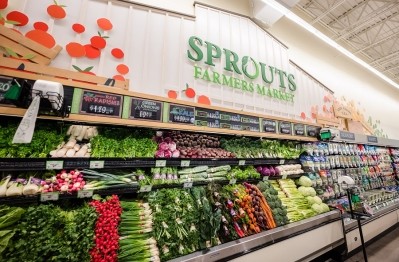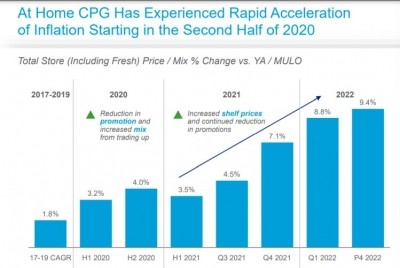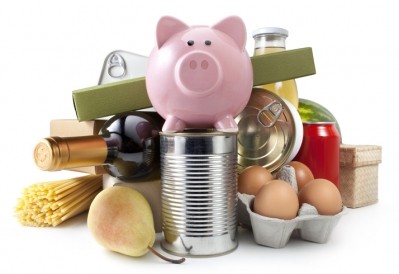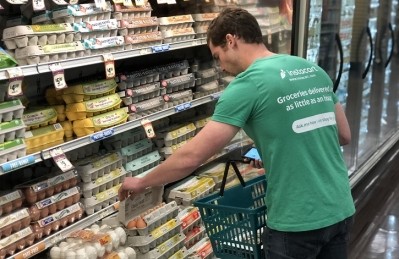Sprouts Farmers Market sees consumer spending tighten as inflation, prices, continue to rise
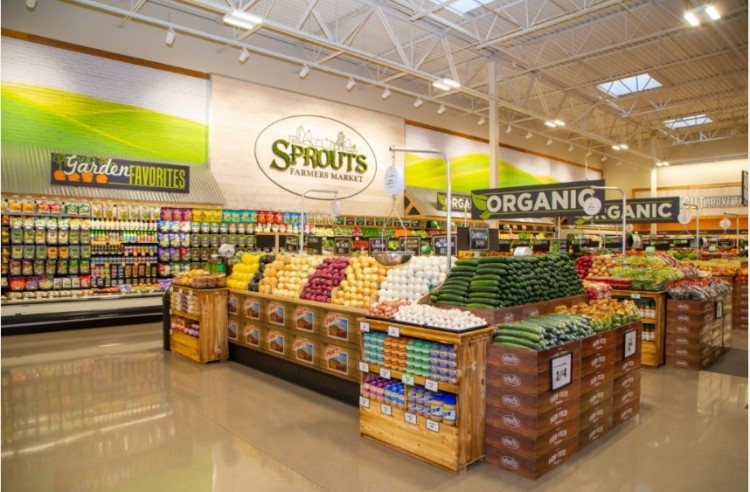
“Inflation is not slowing and customers continue to put one to two fewer items in their basket this year than last. We can speculate a variety of reasons as to why the fewer units – rising gas and utility prices of late, precious discretionary dollars [going] to more experiential offerings, such as travel or restaurants,” CFO Chip Molloy told investment analysts yesterday during the company’s first quarter earnings call.
Another possible reason for the dip in basket size could be the retailer’s decision to fully pass on to consumers the double-digit cost inflation it is experiencing, analysts suggested during the call – noting that other retailers, such as Albertsons, have only partially passed along higher prices in a bid to win consumers with a better value proposition.
CEO Jack Sinclair dismissed this strategy for Sprouts, noting that he is uninterested in consumers who shop based on price because they are not as loyal as consumers who come to Sprouts for its curated selection that includes exclusive products and more better-for-you offerings that comply with popular diet trends, including the keto, vegan and gluten- and dairy-free diets.
Strategies to boost basket size
While the retailer seems unwilling to play on price, it is focused on building a stronger basket by controlling what it can control, Sinclair said, explaining this includes improving in-stocks, bringing back a selling culture to stores, key merchandising solutions and basket-level promotions.
In-stocks may sound like table stakes, but during the pandemic with supply chain challenges, it has become more tenuous. Even before the pandemic though, Sprouts has “historically been somewhat challenged in this area due to unsophisticated systems,” acknowledged Sinclair.
To improve this, the retailer adopted a new computer-assisted ordering system that Sinclair says provides greater visibility and accountability to inventory levels and allows stores to shift from estimating and ordering to “just counting.”
“We’re extremely confident this will improve our stocks across the chain,” and “we’re building out a true replenishment team,” he said.
Sampling returns along with more impulse shopping
To “bring more buzz to our stores” after years of restrictions due to the pandemic, “we’re bringing back assertive sampling in a big way, allowing our customers to taste and experience new products,” Sinclair said.
He explained this is possible in part because the company has adopted “true labor standards in our stores and a system to support it,” which will allow it to weed out unnecessary and duplicative tasks – allowing it to shift more employee attention to customer engagement.
Likewise, Sprouts will offer more seasonal impulse items and roll out “innovation centers and more prepared meal fixtures” in store to help create “the ongoing treasure hunt and highlight new products in our stores,” Sinclair said.
He explained that customers like the convenience of prepared foods, “so we’re stepping up our exposure to heat and eat daily meals and prepared on pan meals, as time becomes a more precious commodity for our consumers.”
Select discounts
Finally, the retailer is offering more house or department discounts as opposed to specific items, which Sinclair said drives incremental traffic and delivers baskets that are two times the average.
Through these measures and by “focusing on controlling what we can control to drive the basket forward,” Sinclair said he is confident in the retailer's ability to grow.
Despite this confidence, there are elements that Sprouts cannot control – such as the timeline and extent of inflation, Molloy said, which is why he said it is “prudent to expect total sales growth, comparable store sales growth and earnings per share to be at the lower end of the outlook we provided during our last earnings call in February.”
That outlook included 4% to 6% total sales growth, 0% to 2% comparable store sales growth and earnings per share in the range of $2.14 and $2.24.
“For the second quarter, comparable sales should be close to flat and earnings per share is expected to be between” 49 cents and 53 cents, he added.
Analysts voice skepticism, fear
While Sprouts executives were confident and comfortable with the its comps and plan to boost shopper spending, several analysts on the call were not and many questioned why Sprouts was the only retailer to report a dip in spending. Some asked if it was due to a flaw in the retailer's strategies, while others asked if Sprouts was just the first to experience smaller baskets.
Mark Carden with UBS noted that he had seen "some pretty strong top line results at grocers, like Publix, in recent days with inflation, presumably ... a bit of a tailwind."
He asked whether Sprouts' negative experience was because competitors were investing more in price or if trip consolidation at larger grocers may be capping Sprouts' transaction growth from being higher, or if something else was driving the differential.
Sinclair said he did not believe that consumers were choosing other retailers over Sprouts to save money, but that they were spending on travel and at restaurants and therefore less at the grocery store.
'I don't think we're seeing a dramatic change in trade down'
Scott Mushkin of R5 Capital reiterated Carden's concerns, noting that Sprouts' is "having a very different experience than most people in your industry over the last, say, 12 months on the comp line."
He asked if, like Albertsons, Sprouts should consider "strategic alternatives."
Molloy countered that Sprouts' traffic remains strong and that it will focus on bringing in new consumers with marketing highlighting the retailers' affordable produce and treasure hunt experience. Additional shoppers could help offset a small decline in basket size, he suggested.
As executives sought to sooth investor fears about its performance, Krisztina Katai with Deutsche Bank wondered if the retailer's experience was harbinger of what is to come for others.
Noting that Sprouts' shoppers tend to be "slightly higher end than conventional grocers'," she asked if it had noticed any changes in patterns within the retailers' various income demographics that would point to the beginning of a trade down period.
Sinclair affirmed that "you're seeing some trading down" in meat, likely due to price, and that produce hasn't been as strong, but he reiterated an increase in store traffic and noted that "I don't think we're seeing a dramatic change in trade down."
